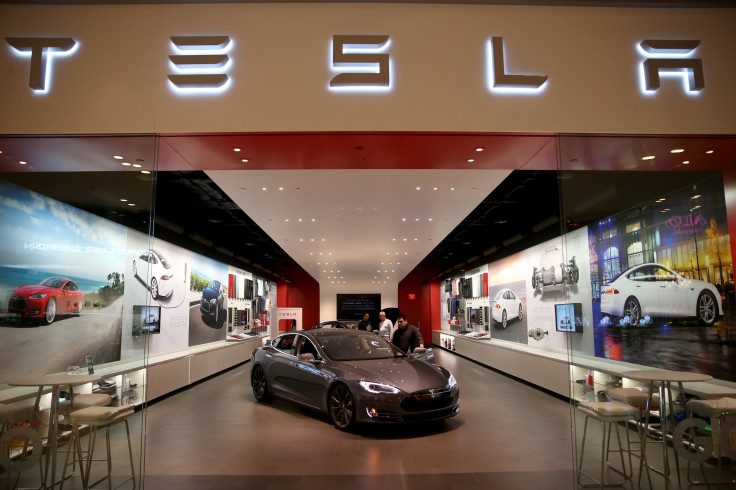Tesla Motors' Elon Musk Announces P100D Battery: What The Bigger Packs Means For Electric Cars

Tesla Motors CEO Elon Musk announced Tuesday that the company would start building cars with 100 kilowatt-hour battery packs, known as P100D batteries.
The new battery packs will increase the range of Tesla Model S to 315 miles, making it the longest range production electric vehicle in history, a press release said. A bigger battery pack would also be available for the Model X, which would increase the electric SUV's range to 289 miles.
People who have already ordered vehicles with 90 kilowatt-hour packs, could upgrade to the larger pack for $10,000.
The announcement came just hours after Musk teased the big news on Twitter. At about 11 a.m. EDT, Musk tweeted a simple message to his followers, “Tesla product announcement at noon California time today,” he wrote.
That tweet fueled wild speculation online, with many voicing their hope that the company would unveil the largest and most powerful battery for their vehicles yet.
Introducing P100D with Ludicrous Mode, more performance & range for Model S & Model X https://t.co/tG6P3ntC4Z
— Tesla (@Tesla) August 23, 2016
Elon Musk confirms 100kWh batteries are on way https://t.co/8CVlEEYLNX pic.twitter.com/bCQTJZNFpF
— Autocar (@autocar) August 23, 2016
BREAKING: Tesla announces new version of Model S & Model X with faster acceleration, longer battery range. https://t.co/amY7HCmGz3
— CNBC Now (@CNBCnow) August 23, 2016
A P100D-equipped Model S or Model X would have a larger range than the vehicles that have come before them. The current Tesla cars on the market, equipped with 90-kilowatt-hour battery packs, are limited to travelling about 294 miles on a single charge — depending on individual use — and are powerful enough to accelerate from zero to 60 miles per hour in 2.8 seconds.
Prior estimates for the price of a car with a 100 kilowatt-hour pack would likely cost at least $129,000 or more, based on currently available vehicles. The current models with the 90 kilowatt-hour packs start at $109,500.
Tuesday’s announcement also follows news earlier this month that Tesla had acquired SolarCity, a solar power company, for $2.6 billion. That announcement wasn’t seen favorable, at least not immediately, by investors. Shares in both of the companies quickly fell following the announcement.
The acquisition of SolarCity was premised on the notion that owning a solar company could bring greater economies of scale in electrical energy management systems, battery production and marketing, according to Reuters. Standard & Poor's put Tesla on CreditWatch following the deal, saying that it had negative implications because it raised questions about the company’s flow of money after such a big buy.
© Copyright IBTimes 2024. All rights reserved.






















